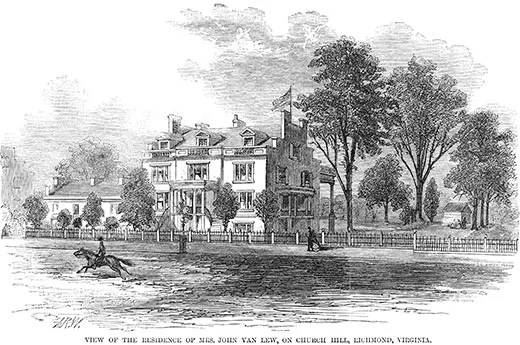

Revere, whom she had aided during the war, donated a tombstone. Her grave was unmarked until the relatives of Union Colonel Paul J. Allan Pinkerton, the head of a detective agency was chosen to be in charge of intelligence for General McClellan. She died on September 25, 1900, and was buried in Shockoe Hill Cemetery in Richmond, Virginia. Finally, a group of wealthy and influential Bostonians collected money for the woman who helped so many Union soldiers during the war. She kept an “Occasional Journal” of her activities, but buried it for a time, for fear of recrimination.Īfter Reconstruction, she became increasingly ostracized in Richmond and having spent her family’s fortune on intelligence, she was destitute. When Richmond fell to the United States, Van Lew was the first person to raise the U.S. Grant’s first visit to Richmond after the war, he had tea with Van Lew, and later appointed her postmaster of Richmond. Sharpe, an intelligence officer for the Army of the Potomac, credited her with “the greater portion of our intelligence in 1864-65.” On Ulysses S. Elizabeth Van Lew was among the most productive Union spies, operating a sophisticated espionage ring in the Confederate capital of Richmond, Virginia. Her work was highly valued by the United States, so much so that George H. Running and operating a spy ring of 12 people, Van Lew was even able to have Mary Elizabeth Bowser hired by Varina Davis, which allowed Bowser to spy in the White House of the Confederacy. In exchange, prisoners gave her information on Confederate troop movements, which she passed on to Union commanders. She then began to help prisoners to escape, passing them information about safe houses and getting a Union sympathizer appointed to the prison. Walker was born during the Civil War on July 15, 1864, in the Richmond home of Elizabeth Van Lew, where her. At first, she brought food, clothing, and other necessities to the Union soldiers held at Libby Prison in Richmond. When the Civil War broke out, she began working on behalf of the Union. Van Lew and her mother also bought and freed some of their former slaves’ relatives. Though he had expressly forbidden it prior to his death, she and her mother freed the family’s nine slaves, one of whom was Mary Bowser, who would later work with Van Lew as a spy.

After she finished school, she returned home to Virginia and a short time later, her father died. She was educated at a Quaker school in Philadelphia, Pennsylvania, where she was first exposed to abolitionism. Her father ran a hardware business and owned several slaves. Van Lew was born on October 25, 1818, the oldest daughter of John Van Lew, a prominent Richmond, Virginia businessman, and Elizabeth Baker Van Lew. Elizabeth Van Lew, a member of the Richmond, Virginia elite, was an abolitionist, philanthropist, and one of the most effective Union spies during the Civil War.


 0 kommentar(er)
0 kommentar(er)
